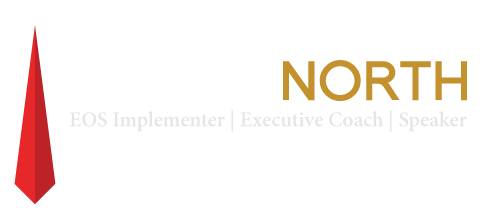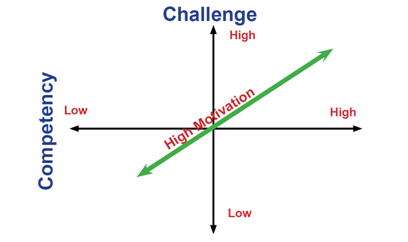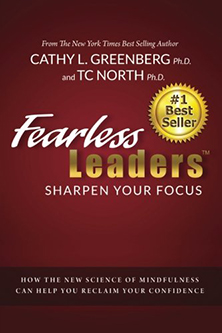Feeling unmotivated? How about burned out?
When you are engaged in tasks that don’t challenge you, you’re likely to be bored, unmotivated and not highly productive. Conversely, when you take on challenges that are significantly more difficult than your competency (skill level) for those challenges—you may find yourself frustrated, even angry … and reach emotional burnout.
Matching competency with challenge levels to find the right mix that creates high motivation is a bit like the process Goldilocks went through in the fairy tale Goldilocks and the Three Bears. To jog your fairy tale memory, here is the beginning of the story.
Like Goldilocks finding the right temperature of porridge, you will benefit by identifying the ideal level of challenge for you. When is it too high, too low or just right for your skill level? Most people find the highest levels of motivation when the challenge is equal to or just slightly above their current skill level.
In sport and high-performance psychology, there is a relationship between the challenge, competency level and motivation level as represented in the graph below. This graph combines my interpretation of the research of Clark Hull on drive (motivation) and Mihaly Csikszentmihalyi on flow.
A motivational relationship exists between competency and challenge level. Motivation is usually high when both the skill and level of challenge are similar, unless both are low.
The combination of both high levels of competency and challenge often leads to the highest level of motivation. High performers typically seek out tough challenges and thrive when engaged in them.
The measure of competency on this graph is not general competency but a very specific measure, different in every situation. For example, I mentally trained an Olympic gold medalist I’ll call John. John was an amazing endurance athlete; however, he was extremely shy and somewhat socially phobic. He was always great in the most challenging and stressful of competitions but was painfully inept in interviews and social settings. We all have different competency levels in all different parts of our lives and for all different skills.
Can you match competency and skill for yourself, those you care about and—if you lead others—for them? When you do, the reward is enhanced joy, self-esteem and confidence.
Dr. TC North is an executive and leadership coach based in the Denver, Colorado, area. He’s also a leadership speaker and the co-author of the best-selling book “Fearless Leaders.” Through his coaching, clients learn to master fear, strengthen confidence, build executive presence and think with greater mindfulness.



